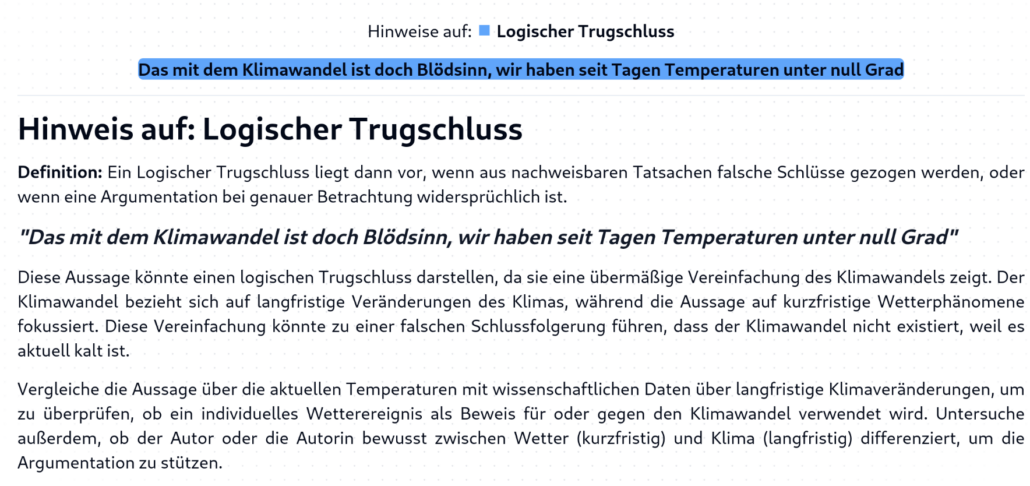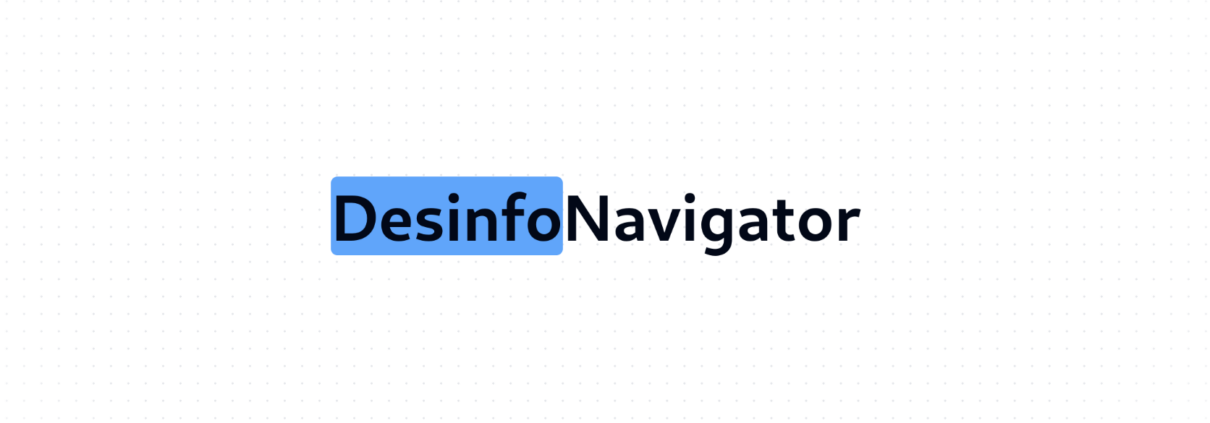DesinfoNavigator
Disseminators of disinformation use various strategies to make false statements appear authentic. To combat this effectively and reduce the credibility of such disinformation, it is crucial that those affected not only recognize it as such but also see through the misleading rhetorical strategies used.
Today, this is more important than ever: we are bombarded with information and opinions daily on social media or at family gatherings. We often decide whether to accept them as valid or questionable in fractions of a second. Knowledge of commonly used rhetorical strategies strengthens intuition and encourages critical questioning of dubious arguments.
This is why we have developed the DesinfoNavigator – a tool that helps people recognise and refute disinformation. With the DesinfoNavigator, users can check text excerpts for misleading rhetorical strategies and at the same time receive instructions on how to examine the text passages for these strategies.
In order to analyse these strategies, the DesinfoNavigator uses the PLURV-Framwork, which includes the following five categories Pseudo-expert:s, Logical Fallacies, Unfulfilled Expectations, Cherry-Picking and Conspiracy Myths.
In its technical implementation, the DesinfoNavigator uses a large language model (LLM). In a first step, the tool analyses the user input for possible rhetorical strategies according to the PLURV framework. In addition to the user input, the language model also receives a detailed description of the strategies, including examples. As a result, the model provides text passages that contain references to one of the strategies. In the second step, the language model generates an action instruction for each identified text passage, which provides instructions on how to check the text passage with regard to the strategy.
It is important to emphasise that the DesinfoNavigator does not perform classical fact-checking, but analyses whether and which rhetorical strategies can be used in a text. We therefore see the DesinfoNavigator as a logical complement to existing fact-checking tools.
To achieve the greatest possible social benefit, we have decided to make the DesinfoNavigator free and freely accessible. This will allow a wide audience to actively participate in detecting and combating disinformation. Curious?
You can currently try out the DesinfoNavigator at https://desinfo-navigator.de/. We look forward to receiving helpful feedback and interested partners who want to help us develop the tool further.

Authors



Dr. Clara Christner
Communication scientist with a research focus on disinformation
Clara Christner (ResearchGate)
Dr. Clara C. (LinkedIn)



